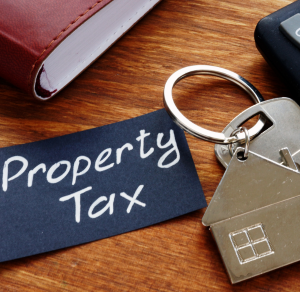
Understanding the Real Estate Market in North Carolina: Key Trends and Insights
Knowledge of economic trends means that North Carolina homeowners will know exactly how to navigate the real estate market if they intend to sell property as For Sale By Owner (FSBO) and cut down on spending that would have gone to realtor commissions. The state of North Carolina has also experienced an increase in the overall value of the housing market, along with growth in the demand for houses within metropolitan regions such as Charlotte and Raleigh.
Sellers should be aware of seasonal fluctuations that can impact investor home buyers in Greensboro and surrounding cities in North Carolina. Typically, spring and summer have the highest sales volume. Do your best to monitor home sales in your vicinity so that you do not miss out on low offers and make a sufficient profit at the same time.
Keeping an eye on mortgage rates is also essential, as they influence buyer purchasing power and can affect the speed at which properties are sold. Homeowners can improve their ability to sell quickly without having to pay extra for a realtor by keeping up with these market dynamics and making strategic decisions.
Contact us for legal advice and expert guidance on the latest market trends and documents needed to sell a house by owner.
Legal Requirements for FSBO in NC
When selling your home by owner, or FSBO (For Sale By Owner), in North Carolina, it’s crucial to understand the legal requirements to ensure a successful transaction. Like every state, North Carolina law requires both parties to prepare and attend to important documents and forms needed for proper compliance and protection.
An important form is the Residential Property Disclosure Statement, which a seller must furnish to reveal any pertinent information about the property’s problems. Also, a Lead-Based Paint Disclosure must be added for houses built before thirty-seven eighty.
The Offer to Purchase and Contract form specifies the sale, listing the price and closing date, and should be done with caution. Sellers, if required, are to provide a Mineral and Oil Rights Mandatory Disclosure Statement.
Understanding these legal forms and disclosures is essential to avoid future conflict or liability during the FSBO process in North Carolina. Consulting a real estate legal professional will help you cover all the necessary details efficiently.
What Documents Do I Need to Sell My House Without a Realtor?

When selling your home without a realtor in North Carolina, gathering the following documents is essential for a smooth and legally compliant transaction:
- Property Deed
– Serves as proof of ownership and is necessary for transferring the title to the buyer. - Sales Contract (Purchase Agreement)
– Outlines the terms of the sale, including purchase price, contingencies, and closing details. - Recent Property Survey
– Clarifies property boundaries and helps avoid disputes over encroachments. - Seller’s Disclosure Statement
– North Carolina law requires disclosing any known material defects or issues with the property. - Homeowner’s Association (HOA) Documents (if applicable)
– Includes rules, restrictions, and fees that buyers must know before purchasing. - Recent Property Tax Statements and Utility Bills
– Provides buyers with financial insight into ongoing property-related expenses. - Affidavit of Title
– Declares that you are the rightful owner and that there are no undisclosed liens or legal claims on the property. - Home Inspection Report (optional but recommended)
– Offers an independent evaluation of the property’s condition, helping to build buyer trust and reduce negotiation friction.
Turner Home Team will help you comply with the documents needed to sell a house by an owner in North Carolina. Feel free to contact us.
Do You Need a Notarized Bill of Sale in NC?
Familiarizing oneself with the prerequisites in North Carolina helps avoid issues when attempting to sell your home for cash in Wilmington by owner. A common question is: Is a notarized bill of sale needed?
In the case of real estate in North Carolina, a bill of sale is usually absent because it pertains more to personal property than real estate. The main document for selling your house is the deed. That document must also be executed and notarized if the ownership is to be legally and correctly transferred.
While a notarized bill of sale may not be necessary for real estate transactions in North Carolina, other documents such as the seller’s affidavit, property disclosures, and settlement statements play pivotal roles. Additionally, comprehension of other parties’ roles concerning the tax liability and any restrictions on the property’s title is equally important.
Also, to avoid potential litigation problems, it is best that the property sellers work with North Carolina real estate or legal specialists to ensure compliance with all legal requirements surrounding documentation for the sale of the property.
What Are the Three Most Important Documents in Any Sale of Property?

When selling your home by owner in North Carolina, these three documents are critical for ensuring a legally sound and transparent transaction:
- Deed
– This document legally transfers property ownership from the seller to the buyer. In North Carolina, the deed must be properly signed and notarized to be valid and recorded with the county register of deeds. - Purchase Agreement (Offer to Purchase and Contract)
– This legally binding contract outlines all terms of the sale, including the purchase price, contingencies, closing date, and any conditions agreed upon by both parties. It serves as the roadmap for the entire transaction. - Seller’s Disclosure Statement
– This form, required under North Carolina law, discloses any known issues or defects with the property. It ensures transparency, helps build buyer trust, and reduces the risk of legal disputes after the sale.
How to Sell a House by Owner: Paperwork?
Selling your house without a real estate professional in North Carolina (FSBO) involves managing several key documents. Here’s a step-by-step guide to the essential paperwork:
- Property Disclosure Statement
– This document, required by North Carolina law, informs buyers of the property’s known issues, including structural, environmental, and system-related concerns. - Offer to Purchase and Contract
– This legally binding agreement outlines the terms of the sale, including the purchase price, contingencies, and the agreed-upon closing date. - Deed Preparation
– A new deed must be prepared to transfer ownership from the seller to the buyer. This process typically requires assistance from a real estate attorney to ensure legal accuracy and compliance. - Settlement Statement (HUD-1 or Closing Disclosure)
– This document details the financial breakdown of the sale, including taxes, fees, and any other closing costs, ensuring transparency for both parties. - Payoff Statement
– If an existing mortgage exists, the seller should obtain a payoff statement from the lender showing the remaining loan balance and any applicable fees. - Notarization and Filing
– Certain documents must be notarized and submitted to the appropriate local government offices for recording. This ensures legal recognition of the transfer and protects both parties. - Consultation with a Real Estate Attorney
– Consult an attorney experienced in FSBO transactions to avoid mistakes and ensure all documentation meets North Carolina legal requirements.
Do You Need an Attorney to Sell a House in North Carolina?
In North Carolina, while hiring an attorney when selling your home by owner is not legally required, also known as a For Sale By Owner (FSBO) transaction, having legal guidance can be highly beneficial. Selling a house involves essential paperwork such as the deed, property disclosures, and sales contract, all of which must comply with North Carolina real estate laws.
An attorney dealing with real estate will ensure that a transaction is done correctly according to all relevant legal requirements, which prevents any issues. This is accomplished by executing all necessary documentation correctly. In addition, he will help greatly simplify the process of lien and encumbrance removal and title examinations, which are usually quite complicated.
Even though you may prefer to manage the sale on your own to cut expenses, hiring a lawyer will allow you to feel more relaxed because your interests will be protected according to the law when selling a house in North Carolina.
Preparing Your North Carolina Home for Sale by Owner
Preparing core documents will ensure a smooth process if you sell your home in North Carolina without a realtor. The very first step is obtaining the deed to the property, which shows ownership and is also required for transferring the title.
In addition, you will need a recent survey of the property to determine its boundaries and possible encroachments. Also, prepare a detailed account of the encumbrances, such as liens and mortgages, against the property, as they need to be settled prior to closing.
The disclosure statement is critical. Under North Carolina law, sellers must notify prospective buyers of any structural, systemic, or environmental problems that are already known. Previous inspection and repair documents can help build buyer trust in negotiations.
Acquire the first purchase agreement and alterations done throughout ownership, as they may contain clauses relevant to the sale. An accurate appraisal document is also crucial as it will help set a reasonable asking price relative to market conditions.
Lastly, a local rule and its tax consequences must be understood; talk with a real estate lawyer who knows North Carolina’s property law to walk you through the legal steps required for a for-sale-by-owner transaction.
What Taxes Do You Pay When You Sell a House in North Carolina?

Understanding the tax implications is crucial when selling a house in North Carolina, particularly as a For Sale By Owner (FSBO) transaction. In North Carolina, sellers are typically responsible for paying the state excise tax on real estate conveyances.
This tax is calculated at $1 per $500 of the home’s sale price and is often called the “deed stamp” or “revenue stamp.” Additionally, while property taxes are generally prorated between the buyer and seller based on the closing date, the seller must settle any outstanding property taxes before or at closing. Sellers should also consider potential capital gains taxes if their home has significantly appreciated since purchase.
To qualify for certain exemptions, such as the primary residence exclusion, specific criteria must be met, including living in the home for at least two of the last five years before selling. Understanding these tax obligations can help ensure a smooth FSBO process when selling your home in North Carolina.
How to Sell a House in NC Without a Realtor?
Selling a house in North Carolina without a realtor involves several key steps to ensure a smooth transaction and maximize closing cost savings. First, conduct a thorough market analysis of your local area to set a competitive price for your home.
Utilize online platforms and resources such as Zillow or Redfin to list your property, and contact potential buyers directly. Prepare your home by staging it effectively and taking high-quality photographs to attract interest.
Don’t forget to handle all necessary paperwork, including the seller’s disclosure statement required in North Carolina. You may want to hire an attorney familiar with real estate transactions in North Carolina to review contracts and ensure compliance with state regulations.
Additionally, consider negotiating directly with buyers or their agents during the offer process, keeping communication clear and professional. By taking these steps, you can successfully sell your home in North Carolina without a realtor while maximizing savings on closing costs.
How Much Are Closing Costs for a Seller in NC?
Understanding closing costs is crucial for maximizing savings when selling a home in North Carolina if you sell without a realtor. In North Carolina, typical closing costs for a seller can range from 1% to 3% of the home’s sale price.
These expenses include attorney fees, title insurance, and unpaid property taxes. By selling your home without a realtor, you can avoid the standard 5% to 6% commission fee typically charged by real estate professionals, significantly reducing overall costs.
Additionally, sellers should be aware of potential expenses such as transfer taxes and any necessary repairs or concessions the buyer requests. To further minimize costs when selling your home without a realtor in North Carolina, consider negotiating with buyers who will cover specific fees or exploring cost-effective service alternatives like flat-fee MLS listings or online platforms that offer guidance throughout the home-selling process.
Understanding these elements allows you to manage your finances strategically and maximize closing cost savings when selling your home independently in North Carolina.
How Do You Close a House Sale Without a Realtor?
Closing a house sale without a realtor in North Carolina involves several essential steps to ensure a smooth transaction and maximize closing cost savings. First, familiarize yourself with the state’s real estate laws and regulations, as this knowledge will empower you to handle the process more efficiently.
Prepare all necessary documents, such as the property deed, title report, and required disclosures. Conduct a comparative market analysis of similar properties in your area to set an appropriate price.
Once you have found a buyer, negotiate terms directly and draft a purchase agreement outlining all sale conditions. Consider hiring a real estate attorney or a title company to assist with paperwork and ensure compliance with legal requirements; their expertise can be invaluable in avoiding costly mistakes.
Additionally, schedule inspections and appraisals if required by the buyer’s lender. As you approach closing day, coordinate with the buyer to finalize financing arrangements and review settlement statements for accuracy.
Finally, prepare for the transfer of ownership by completing the deed transfer at your local county office. By following these steps carefully, you can successfully close your house sale without a realtor while minimizing closing costs in North Carolina.
Do you want to sell your house? Do you want to sell quickly, avoid expensive repairs, or just make an easy sale? This business is here to help. We make fair cash offers, care for all the details, and simplify the process. Do you want to sell or have a question? For an offer that doesn’t bind you, call us at (252) 525-4780. Start right away!
| REALTORS | DUAL AGENCY | FSBO | FOR SALE BY OWNER | REAL ESTATE COMPANIES | CASH |
| MLSS | RALEIGH’S | RALEIGH REAL | RALEIGH, NC | TAXED | MONEY |
| HOME APPRAISAL | DATA | HOUZEO | OPTIONS | LAWYER | ADVERTISERS |
| PRICING | FLAT FEE | ESCROW | REALTY | MORTGAGE LENDERS | MARKETING |
| LENDING | LOANS | FLAT FEE MLS | CREDIT | REALTOR® | NAR |
| IBUYER | ICON | HOMEOWNERS ASSOCIATION | HOA | HOME INSPECTION | LENDERS |
| VISIBILITY | PAYMENT | PAINT | NEGOTIATIONS | INCENTIVES | INCENTIVIZE |
| BROKERAGES | BROKERS | U.S. | TITLE SEARCH | SPACE | |
| REALTOR.COM | EXTRA TIME | COUNTEROFFERS | MARKET VALUE | LAWSUITS | HOME STAGERS |
| HOME STAGING | FAIR MARKET VALUE | EARNEST MONEY | DUE DILIGENCE | DOLLAR | DESCRIPTION |
| CREDIT SCORE | CRAIGSLIST | BUYER AGENT | BANK | AVERAGE | APPRAISER |
